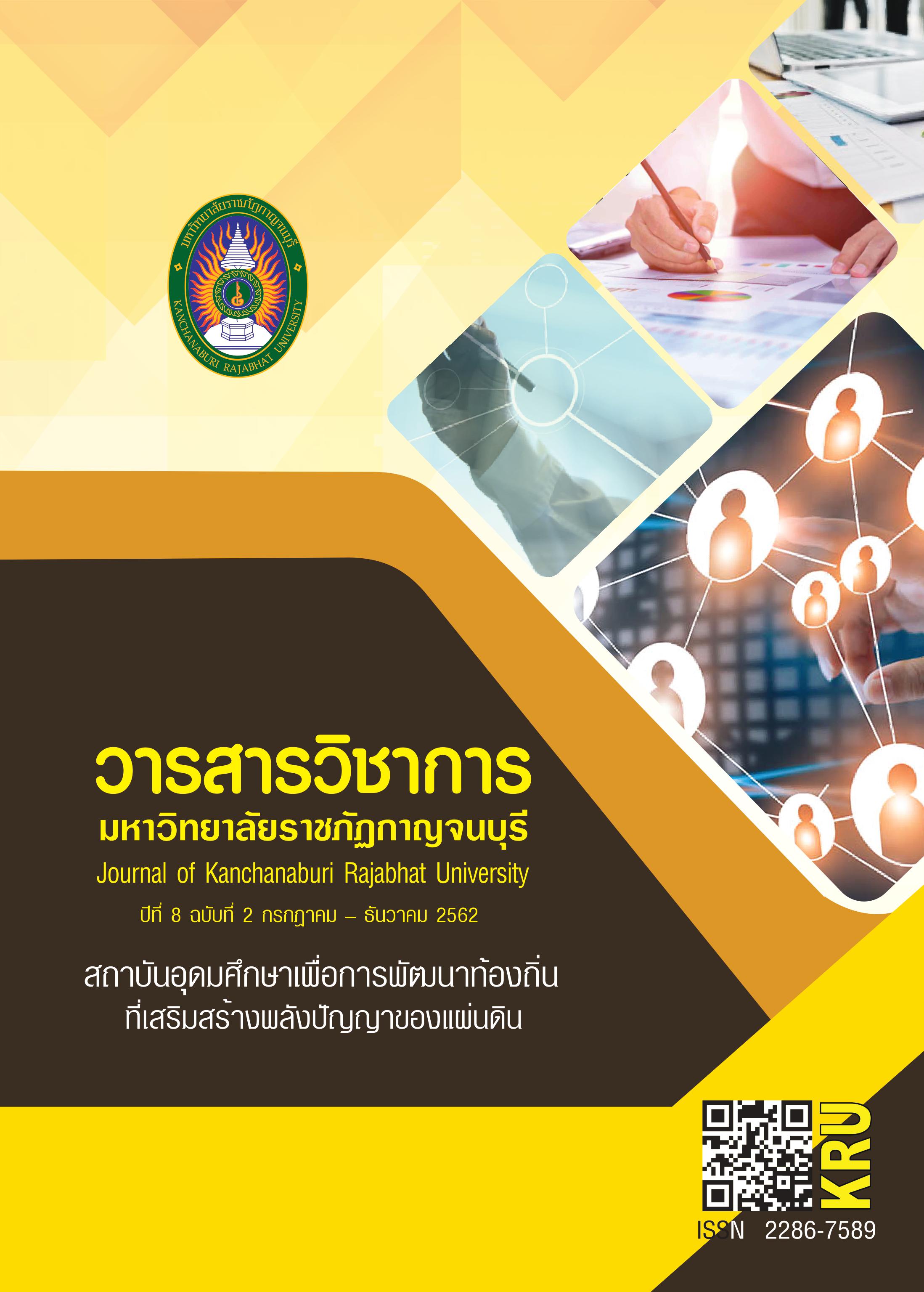THE DEVELOPMENT EVALUATION MODEL OF LIFE SKILLS INTERGRATED LEARNING MANAGEMENT FOR SMALL SCHOOLS DRIVING UNDER THE OFFICE OF BASIC EDUCATION
Main Article Content
Abstract
The purpose of this research was to develop an evaluation model of life-skill integrated learning management for small schools under the Office of the Basic Education Commission. The process consisted of two parts: 1) to study the current status and the way to develop the evaluation model by studying literature and related research, observing the real situation in 3 small schools in Uttaradit Province, randomly selected, conducting in-depth interview of 23 stakeholders, and analyzing the contents. The results showed that the small schools had policy and coordinated the implement but lacked the clear, concrete valuation model. The evaluation model of life skill integrated learning management needs to develop in order to accumulate more information that supports further research management to the school master.2) to develop an evaluation model and validate accuracy, possibly by focus group and questionnaire by 9 experienced experts. From the analyzing of mean and standard deviation, the results showed that the model consisted of 4 main factors : 1) participatory learning plan evaluation, 2) input evaluation, 3) process evaluation, and 4) product evaluation, with 13 indicators. The experts had a consensus that all dimensions of the evaluation model were appropriate and practical at high and highest levels.
Article Details
References
สาขาวิชาบริหารการศึกษา ภาควิชานโยบายการจัดการและความเป็นผู้นำทางการศึกษา
คณะครุศาสตร์ จุฬาลงกรณ์มหาวิทยาลัย.
ฉัตรนภา พรหมมา. (2557). เอกสารประกอบการสอนรายวิชา ระเบียบวิธีวิจัยและประเมินเพื่อพัฒนาการศึกษา (Research
And Evaluation Methodology Educational Development). อุตรดิตถ์ : มหาวิทยาลัยราชภัฏอุตรดิตถ์.
_______ (2561). รูปแบบการประเมินเสริมพลังการบริหารจัดการงานวิจัยและพันธกิจสัมพันธ์ มหาวิทยาลัยราชภัฏ
อุตรดิตถ์กับชุมชนท้องถิ่น. วารสารวิชาการมหาวิทยาลัยราชภัฏอุตรดิตถ์, 13(2), 1-12.
เชิดพงษ์ ชัยวรรณ. (2556). รูปแบบการจัดการศึกษาแบบบูรณาการเพื่อเสริมสร้างสุขภาวะในสถานศึกษาขนาด
เล็กกรณีสำนักงานเขตพื้นที่การศึกษาประถมศึกษาแพร่ เขต 1. วิทยานิพนธ์ปรัชญาดุษฎีบัณฑิต,
สาขาวิชาผู้นำทางการศึกษาและการพัฒนาทรัพยากรมนุษย์ บัณฑิตวิทยาลัย มหาวิทยาลัยราชภัฏเชียงใหม่.
ศิริชัย กาญจนวาสี. (2554). ทฤษฎีการประเมิน. (พิมพ์ครั้งที่ 7). กรุงเทพฯ : จุฬาลงกรณ์มหาวิทยาลัย.
สมคิด พรมจุ้ย. (2552). เทคนิคการประเมินโครงการ. นนทบุรี : มหาวิทยาลัยสุโขทัยธรรมาธิราช.
สำนักงานคณะกรรมการการศึกษาขั้นพื้นฐาน. (2554). แนวทางการประเมินคุณภาพตามมาตรฐานการศึกษา
ขั้นพื้นฐาน เพื่อการประกันคุณภาพภายในของสถานศึกษา. กรุงเทพฯ : สำนักงานพระพุทธศาสนาแห่งชาติ
สำนักงานศึกษาธิการจังหวัดอุตรดิตถ์. (2559). แผนบริหารจัดการโรงเรียนขนาดเล็กจังหวัดอุตรดิตถ์ ปีการศึกษา
2559-2563. อุตรดิตถ์ : ผู้แต่ง.
Patton,M.Q. (2004). The roots of utilization-focused evaluation. In Alkin, M.C. (E.D.) Evaluation
roots : tracing theorists views and influences. pp.276-291. London : SAGE.


